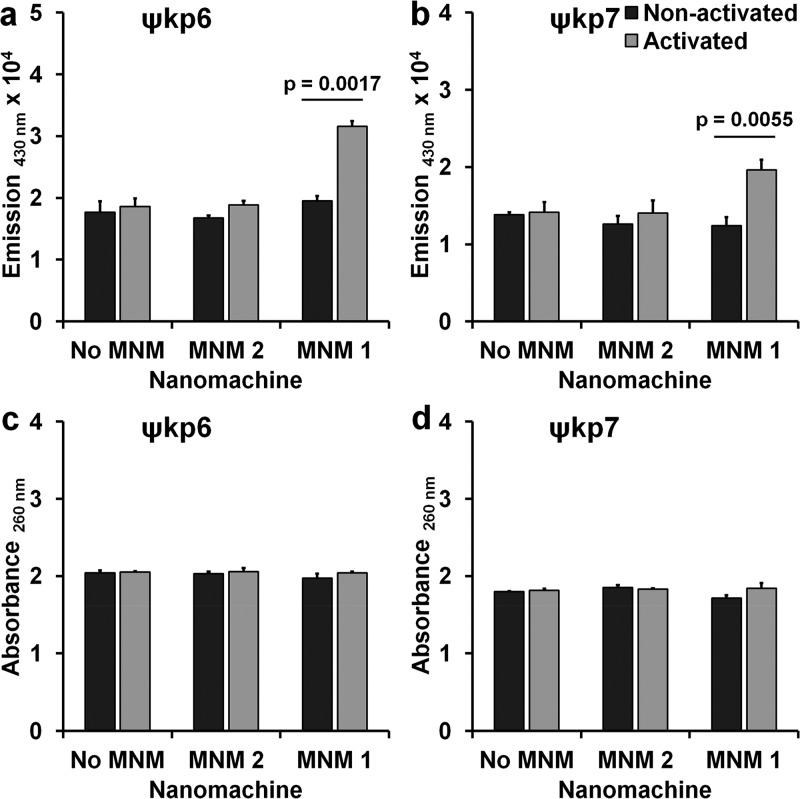Figure 5.
Cell wall outer membrane permeability and cell membrane integrity with and without light activation of molecular nanomachines. (a,b) Cell wall outer membrane permeability assay of K. pneumoniae exposed to no MNM DMSO, 10 μM of MNM 2, or 10 μM of MNM 1. Outer membrane permeability determined by the increase in fluorescence due to the partitioning of phenylnaphthylamine (NPN) into the cell wall outer membrane, measured by the increase in emission at 430 nm. Comparison of emission at 430 nm of K. pneumoniae with NPN after MNM exposure, without (nonactivated) and with light activation (activated). (a) Extensively drug-resistant strain of K. pneumoniae (ψkp6, AR-0666). (b) Antibiotic-sensitive strain of K. pneumoniae (ψkp7, NIH-1). (c,d) Cell membrane integrity assay of K. pneumoniae exposed to no MNM (DMSO), 10 μM of MNM 2, or 10 μM of MNM 1. Disruptions in cell membrane integrity determined by cytoplasmic release of DNA and RNA, measured with an increase in absorbance at 260 nm. Comparison of absorbance at 260 nm of K. pneumoniae after MNM exposure, without (nonactivated) and with light activation (activated). (c) Extensively drug-resistant strain of K. pneumoniae (ψkp6). (d) Antibiotic-sensitive strain of K. pneumoniae (ψkp7). Results presented are means and standard error from four replicates for each group. The p values are from an unpaired two-tailed Student’s t test.

